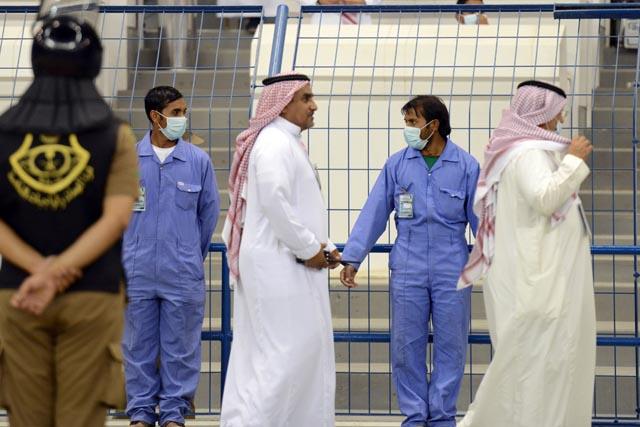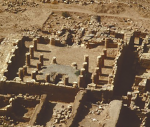You are here
King bids to reassure Saudis as MERS deaths hit 85
By AFP - Apr 24,2014 - Last updated at Apr 24,2014

RIYADH — King Abdullah was in the Saudi commercial hub of Jeddah on Thursday in a bid to reassure a worried public as the death toll from the MERS virus hit 85.
The Red Sea city has seen a spate of cases among health staff in recent weeks that have sparked fears that the virus has mutated to make it more transmissible from person to person.
The World Health Organisation announced on Wednesday that it had offered to send international experts to Saudi Arabia to investigate “any evolving risk” resulting from the apparent change in transmission pattern.
Public concern has been fuelled by the reported resignation last week of at least four doctors at Jeddah’s King Fahd Hospital after they refused to treat MERS patients for fear of infection with the deadly coronavirus.
In its latest bulletin on Wednesday, the health ministry said that it had recorded a total of 287 cases of Middle East Respiratory Syndrome in the kingdom so far, of whom a full 85 had died.
Despite the figures, the royal family insisted there was no cause for public alarm.
National Guard Minister Prince Mitab said his father King Abdullah was in Jeddah “to reassure the public, and to prove that the exaggerated and false rumours about coronavirus are not true”.
“The MERS situation is reassuring and it has not reached the level of an epidemic,” he told students in Jeddah according to the Saudi Gazette.
But that did not stop the king from dismissing health minister Abdullah Al Rabiah on Monday without an official explanation.
Labour Minister Adel Fakieh, who has taken over as acting health minister, said on Twitter late Tuesday that he had visited the King Fahd Hospital.
He promised “transparency, and to promptly provide the media and society with the information needed”.
WHO offers expertise
The World Health Organisation said on Wednesday that the recent cluster of cases among health workers was a cause of concern as the virus had clearly been contracted from a human patient and not directly from an animal host.
“WHO is unaware at this point in time of the specific types of exposure in the health care facilities that have resulted in transmission of these infections, but this remains a concern,” the UN agency said.
“Therefore, WHO has offered its assistance to mobilise international expertise to Saudi Arabia and United Arab Emirates to investigate the current outbreaks in order to determine the transmission chain of this recent cluster, and whether there is any evolving risk that may be associated with the current transmissibility pattern of the virus.”
Experts are still struggling to understand MERS, for which there is no known vaccine.
A recent study said the virus has been “extraordinarily common” in camels for at least 20 years, and it may have been passed from the animals to humans and now evolved.
Since the emergence of MERS in April 2012, a total of 253 laboratory-confirmed cases of human infections with MERS have been reported to the WHO worldwide. Of those 93 have died.
The virus is considered a deadlier but less-transmissible cousin of the SARS virus which erupted in Asia in 2003 and infected 8,273 people, 9 per cent of whom died.
Related Articles
A Saudi man has died of MERS in the western city of Jeddah, where authorities have sought to calm fears over the spreading respiratory illness, the health ministry said Wednesday.
Saudi Arabia dismissed its health minister on Monday just days after he visited a hospital at the centre of growing concerns about the kingdom’s handling of the MERS virus.
Two foreigners died of MERS in the Saudi city of Jeddah, the health ministry said Saturday, as fears rise over the spreading respiratory virus in the kingdom’s commercial hub.
















